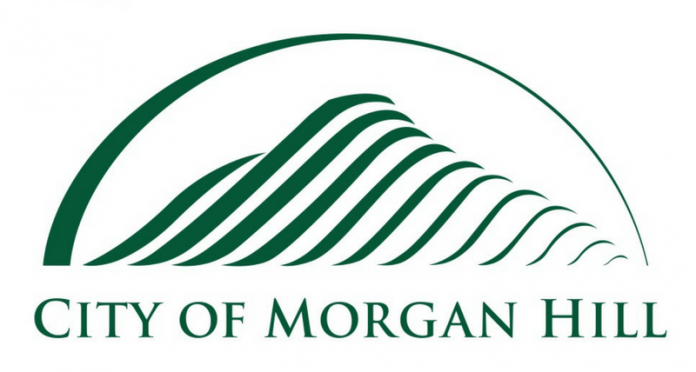Morgan Hill voters will see three local measures appear on their ballots this November—an increase in the tax on hotel room stays, a tax on cannabis sales in Morgan Hill and a measure that would change city clerk and city treasurer roles to appointed positions.
The City Council voted unanimously July 18 to move forward with the measures.
In April, the City of Morgan Hill commissioned a survey by Godbe Research to gauge public opinion on increasing the city’s Transient Occupancy Tax—often referred to as a hotel tax—as well as a sales tax on marijuana. Respondents generally favored both taxes.
The Transient Occupancy Tax in the city is would increase from 10 to 11 percent, if voters approve. The money will go into Morgan Hill’s coffers at the discretion of the city council. The decision by the council to place the measure on the ballot was paired with another to take steps toward creating a new Tourism Business Inclusion District.
The inclusion district is not on the ballot, and the specifics of its creation hinge on voter approval of the occupancy tax increase. The inclusion district is planned to have a tax of 1.5 percent which the hotels will collect from patrons to boost marketing and promotion for the City of Morgan Hill.
A council staff report defines the occupancy tax as “an additional charge added to hotel/motel room night stays (that) is collected by the hotels and transferred to the city.”
Harjot Sangha, accounting manager for the city, estimated Morgan Hill’s original occupancy tax began around the 1970s at a rate of 5 percent. Hotel patrons pay the occupancy tax when renting a room, and it is the responsibility of the owner to then turn the tax collected over to the city.
The Godbe study found that support for the occupancy tax was somewhere between 63 and 67 percent of those surveyed, with constituents willing to increase the tax by up to 4 percent.
The proposed inclusion district to be formed in conjunction with the potential occupancy tax increase will likely be made up of property owners, hotel representatives, city staff and a council- or mayor-appointed member.
The city council report defines the inclusion district as “a business district formed by the hotels where through a majority vote they self-tax to generate revenues that would be used for tourism promotions.”
Several business owners in Morgan Hill spoke at the July 18 meeting in support of the occupancy tax increase and inclusion district formation. Andrew Firestone, principal for StonePark Capital, spoke passionately in favor of the inclusion district at the meeting, citing similar districts in San Luis Obispo and Santa Barbara.
Firestone said in an interview that the council’s decision to place the measure on the ballot and move forward with the inclusion district “was a great example of collaborations between the hotels and the city.”
Councilman Rich Constantine said at the meeting that he’s “always impressed when a business volunteers to tax themselves.”
Cannabis Tax
The Godbe study also found that 63 to 64 percent of those surveyed were in favor of taxing marijuana when or if any cannabis-oriented businesses are allowed in Morgan Hill.
The city council moved to impose a 30 percent tax on both medicinal and recreational marijuana businesses if either is opened in the city. The measure for a cannabis tax follows a strategy adopted by other cities and counties, first approving marijuana taxes and continuing the debate over what, if any, cannabis businesses would be allowed in the municipality.
Councilman Larry Carr echoed this sentiment and said the approval to move forward with the cannabis tax measure on the November ballot was just the beginning of more discussions. He added that the discussion about cannabis businesses in Morgan Hill is “far from over.”
While there was some concern within the council over how much revenue would realistically be brought to the city with a cannabis tax, all council members agreed to let voters decide whether the tax should be approved.
David McPherson, cannabis compliance director at Hinderliter, de Llamas and Associates, helped draft the presentation to the council and spoke on the proposed cannabis tax at the July 18 meeting along with Morgan Hill Police Chief David Swing.
McPherson said at the meeting that he has assisted in the drafting of several other cities’ cannabis tax ordinances. The council decided to amend the ballot measures’ language on the projected revenue from cannabis taxes to a range of $340,000 to $750,000.
Mayor Steve Tate said he was still not in favor of cannabis businesses opening in Morgan Hill, but voted in favor of putting the measure on the ballot.
Tate stated, “I don’t want cannabis things going on in this community, but if they are we damn well better tax them.”
City Treasurer and City Clerk
Eight years ago the Morgan Hill City Council moved forward with a ballot measure that would have changed the positions of city clerk and city treasurer to appointed positions as opposed to elected. The measure did not pass because of what City Attorney Donald Larkin described as “active opposition.”
Larkin said he did not think the same opposition would be present this time if the measure was put on the ballot. He said most cities in California have made the positions appointed posts. According to the city council staff report, Morgan Hill is one of two cities in Santa Clara County where the positions are elected, the other being Santa Clara. Larkin said shifting the roles to appointed positions could save the city about $40,000 annually.
“The lesson we learned from last time is we need to do a better job educating the voters about what it is the city clerk and city treasurer do,” said Larkin.
If the measure passes, current City Treasurer David Clink would serve the remainder of his term through 2020.








